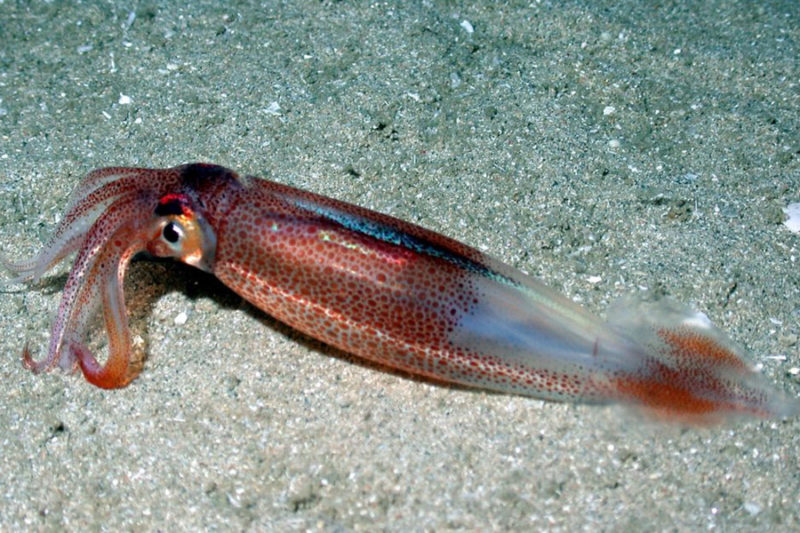“Business has fallen off a cliff, for squid, and for every market that deals with restaurants,” says Chris Lee, of Sea Fresh USA, a supplier and processor in North Kingstown, R.I. “Every dockside processor is talking about coronavirus.”
While the year-round Northeast longfin squid fishery commercial harvest is used to fluctuation, the covid-19 pandemic is unparalleled.
“There’s always lots of uncertainty with squid availability and international demand/supply price effects. My understanding is that coronavirus-related restaurant shutdowns have had extreme immediate negative effects on domestic demand, and negative effects for exports are expected as well,” says Jason Didden of the Mid-Atlantic Fishery Management Council.
In the past decade, says Lee, most of his squid was sold domestically. But now, he says, “we haven’t just lost the U.S. market. I have containers of squid on the water that were going to Europe. Customers are already trying to renegotiate because those markets in Europe are not open, all their restaurants are closed.” If there is an upside right now, Lee adds, it’s China, where some markets are looking as if they are starting to reopen.
This year, prior to the pandemic, longfin had been doing well, says Lee. “It’s been a very good last 365 days of landings and prices. It’s been very rewarding for boats and processors. Fishing has been good all winter. Longfin has had good value and price.”
Prior to the pandemic, landings were tracking close to last year, according to Didden. “Fleets caught 27.5 million pounds of longfin, valued at $42.9 million (ex-vessel). Average 2019 price was slightly above 2018. Last year, fleets landed 59.9 million pounds of illex, (a record), valued at $28.0 million (a record) ex-vessel. Average 2019 price was a bit higher than 2018, one of the highest.”
Lee says prices have fallen by 60 percent so far, with more likely to come.
“We hit a brick wall for the squid market,” adds Lee. “The fish are still there, but everyone is in a state of confusion. We don’t know where the market is, where the price should be, and if we’re going to be paid. Everyone is impacted.” The illex fishery runs from May to October, so that market isn’t as impacted yet.
When markets are rebuilt, says Lee, he hopes consumers keep enjoying fried calamari, but that markets will also highlight for consumers the multiple ways squid can be prepared: sautéed, grilled and more.
On the regulatory side, an assessment update for longfin squid is expected in the summer that could impact quotas. Regulators are also considering reducing the number of limited access illex permits through a requalification, and other measures.







